I want to tell you about the most unusual animals on our planet. As it turned out, there are quite a few of them, many of them I had never even suspected before. I will start my post with the Star Bearer.
1. Stargazer
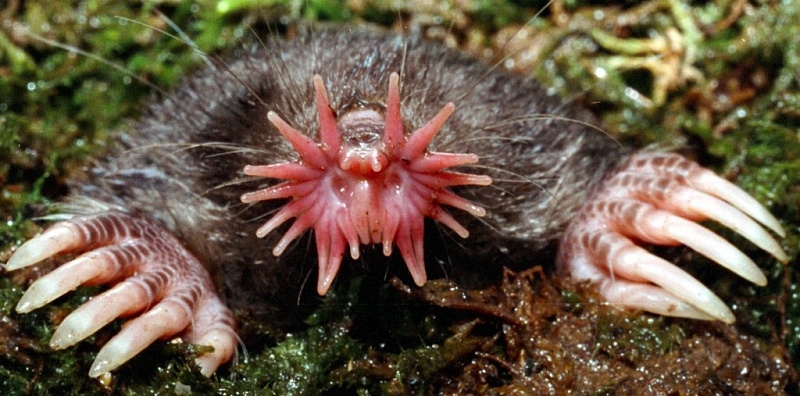
Stargazer
An unusual mole that feeds on insects. A fleshy nose with 22 pink tentacles gives it originality.
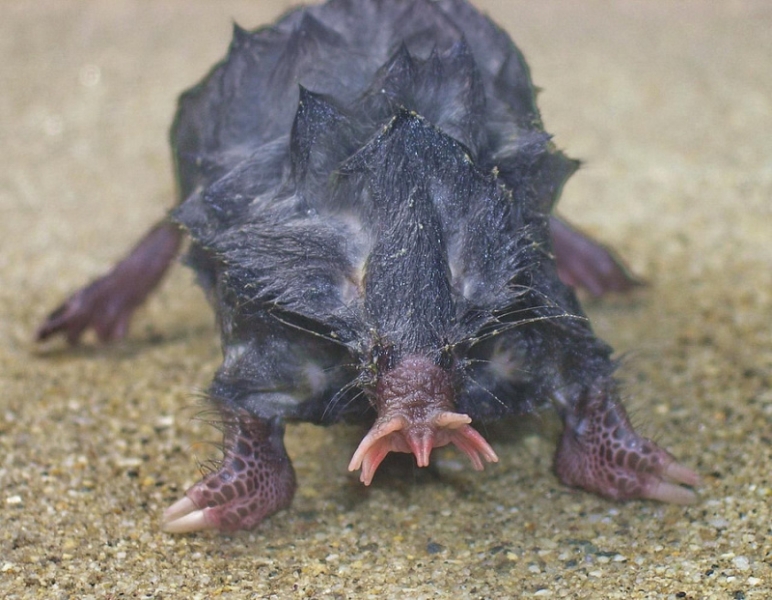
Stargazer, photo
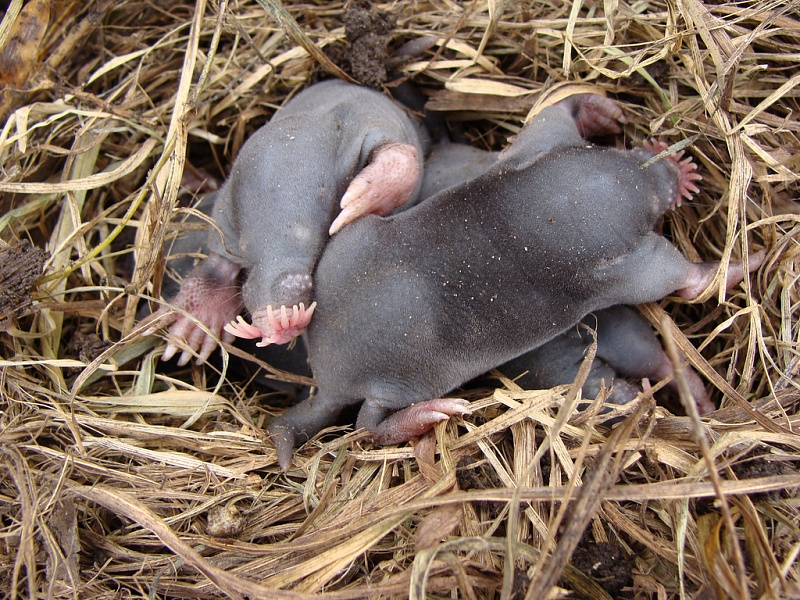
Stargazer Kids
2. Fainting goats
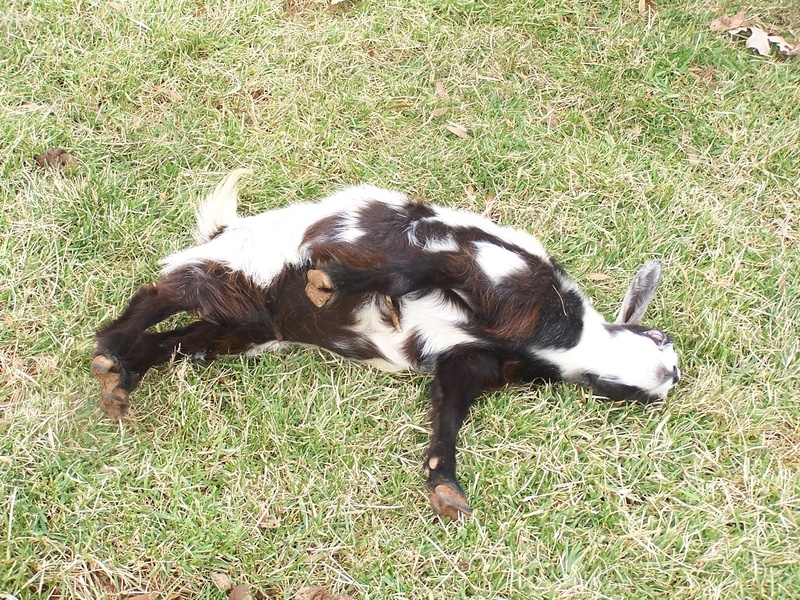
Fainting goats
In the state of Tennessee, the efforts of breeders have bred a breed of goats that fall into a stupor in emergency situations. This is due to a rare genetic disease – in stressful situations, animals experience complete muscle paralysis, since it is impossible to stand in such a state, they fall on their side or on their back. At the same time, the goats are fully conscious. Situations in which a fainting goat can lose its “senses”: a threat to life, a large amount of favorite grain and a charming representative of the opposite sex.
3. Angora rabbit

Angora rabbit
One of the most ancient breeds of rabbits, and the most fluffy.
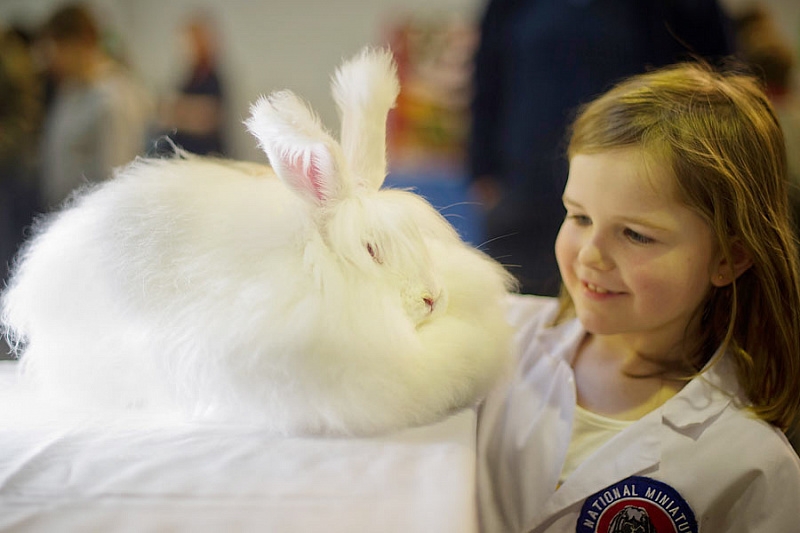
Angora rabbit, photo
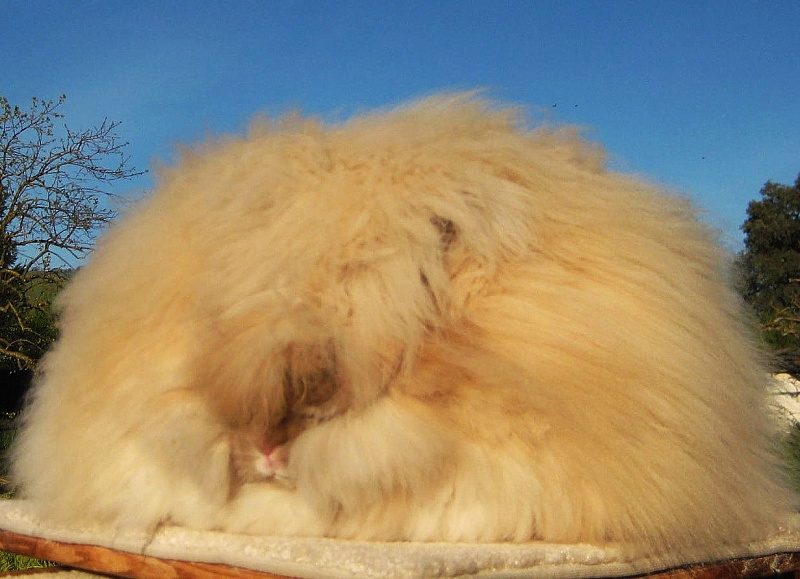
Angora rabbit, photo 1
4. Ai-Ai, or a Handlebar

Ay-Ay, or a Handlebar
It lives in Madagascar. Despite the fact that it resembles a rodent, it belongs to the suborder of semi-monkeys.
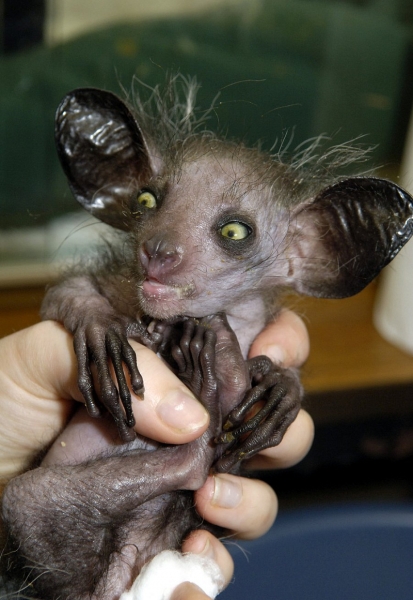
Ay-Ay, or a Centipede in Madagascar
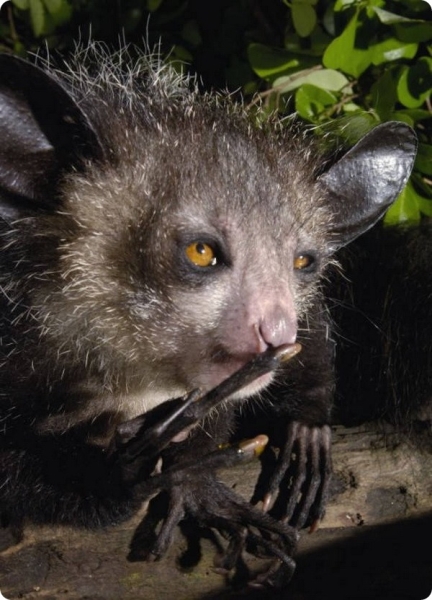
Animal Handleg
5. Paku fish
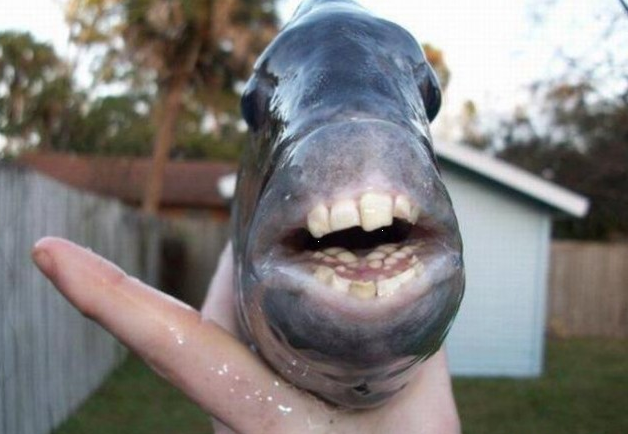
Paku Fish
A relative of piranhas. She became famous for her human teeth. The basis of the fish’s diet is plants and nuts, however, there are legends about biting off male testicles.
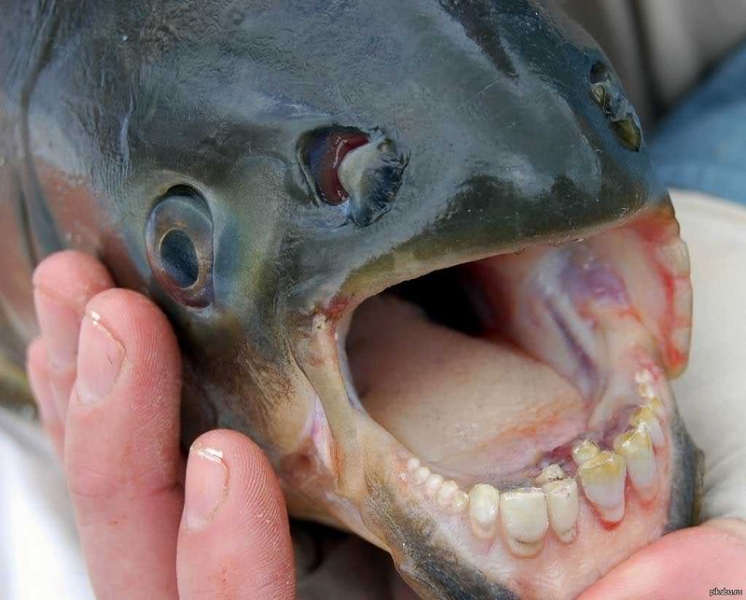
Paku fish with human teeth
6. Giant isopod
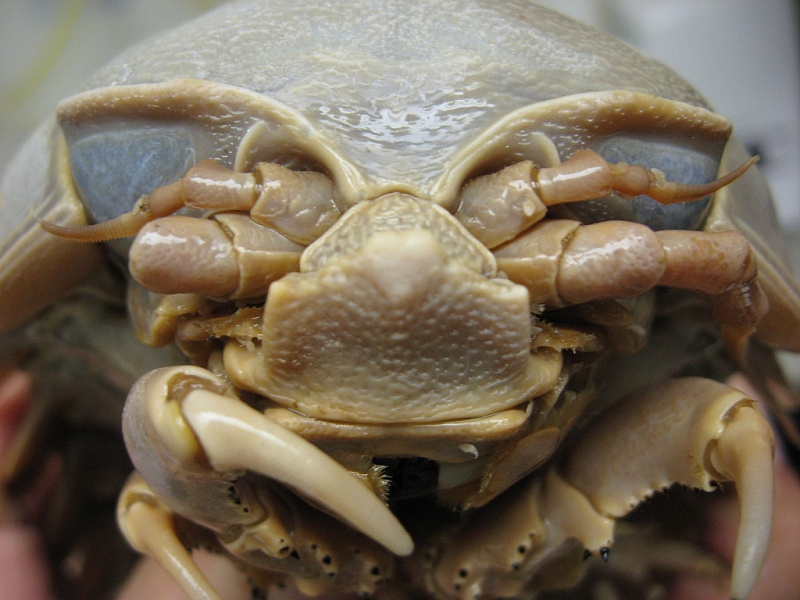
Giant isopod
It looks like a huge woodlouse, lives underwater at a depth of 170-2000 meters. It can reach up to 37 cm in length with a weight of 1.7 kg.
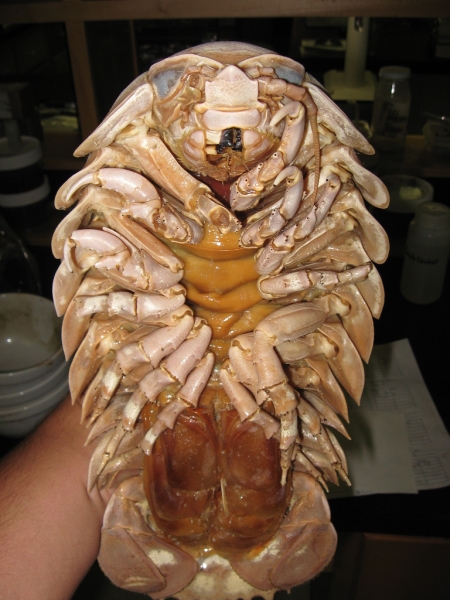
Giant isopod, photo
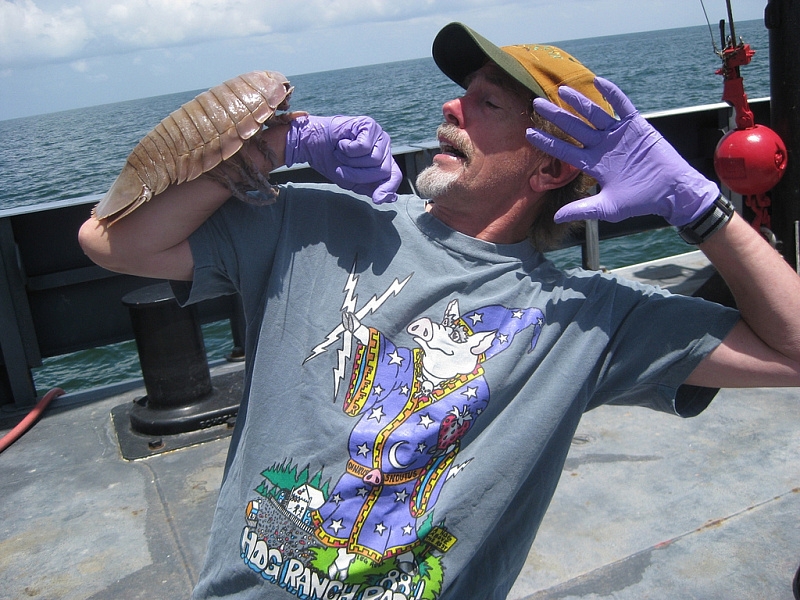
The giant isopod in the photo
7. Snakehead
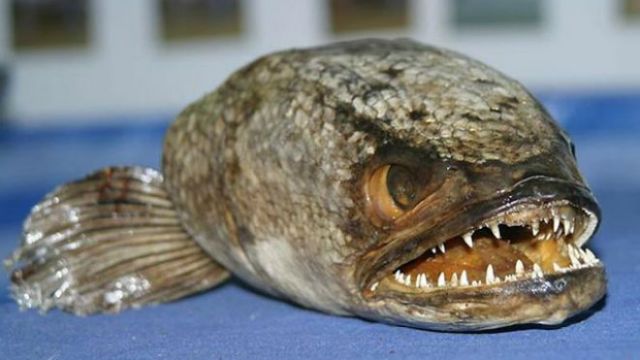
Snakehead
The fish differs not only in appearance, but also in its bad character. She devours all the fish in the pond, not excluding her offspring. But that’s not all – when everything is eaten in the reservoir, the fish moves to land – in search of a suitable victim, the fish can stay on land for up to three days. There have been cases of attacks on people.
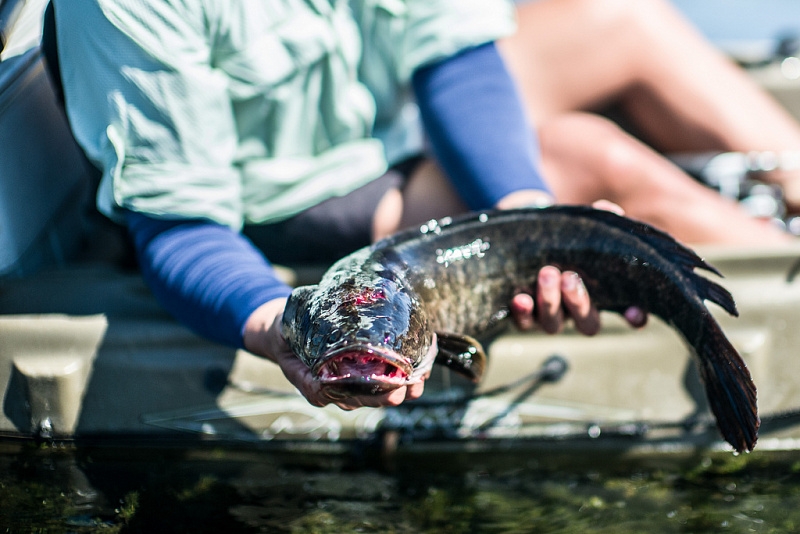
Photo of the Snakehead
8. Saiga
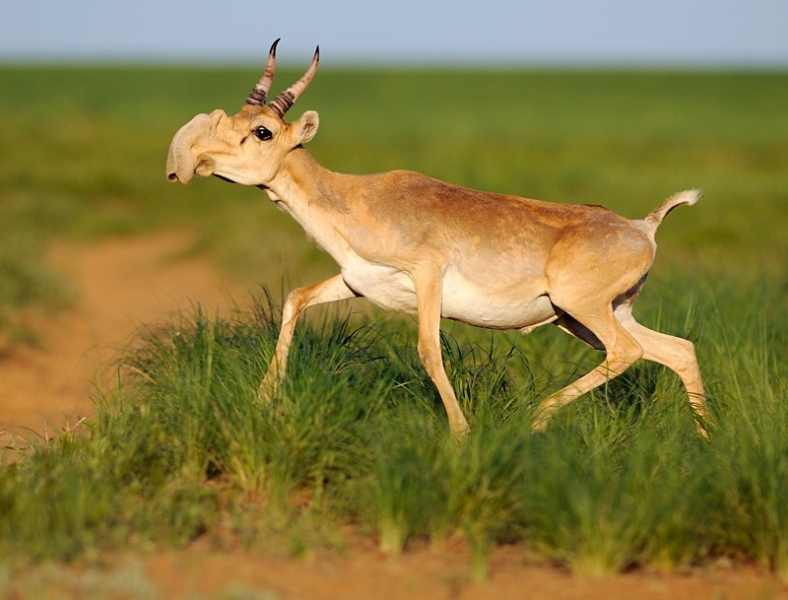
Saiga
Saigas lived on earth back in the days of mammoths and saber-toothed tigers, these are some of the most ancient mammals.
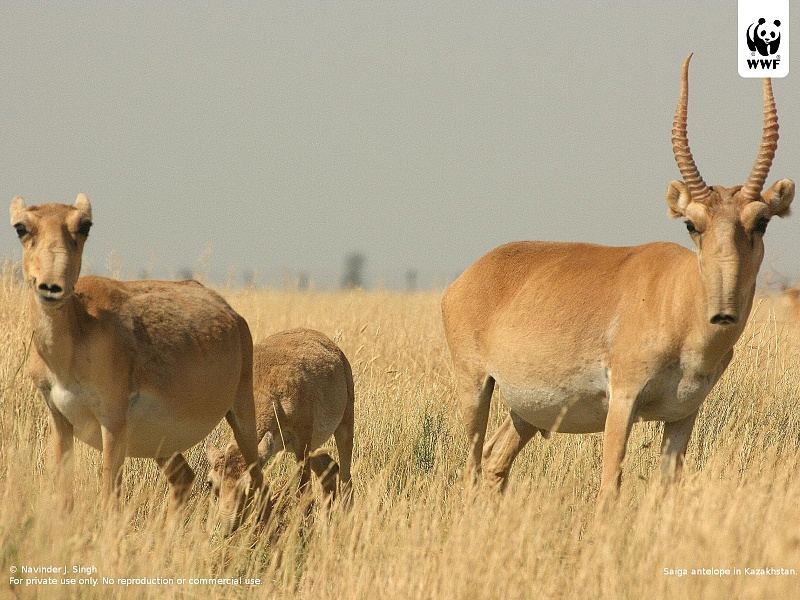
Saiga in the photo
9. Grimpoteuthis or Octopus Dumbo
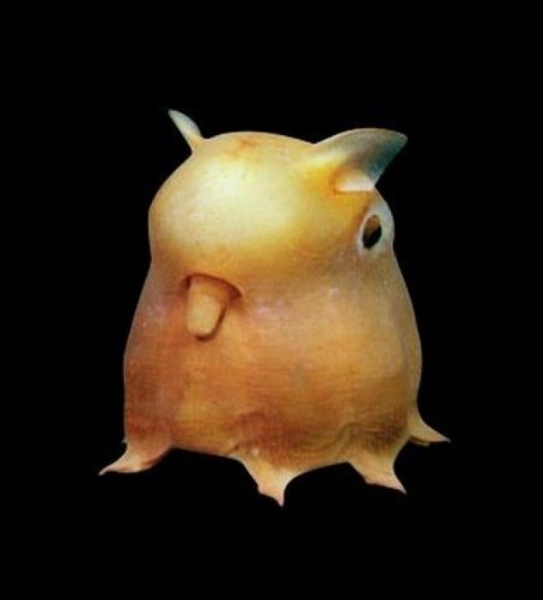
Grimpoteuthis or Octopus Dumbo
The deepest octopus. It can live at a depth of 4,900 meters. Personally, it looks like Pikachu to me.
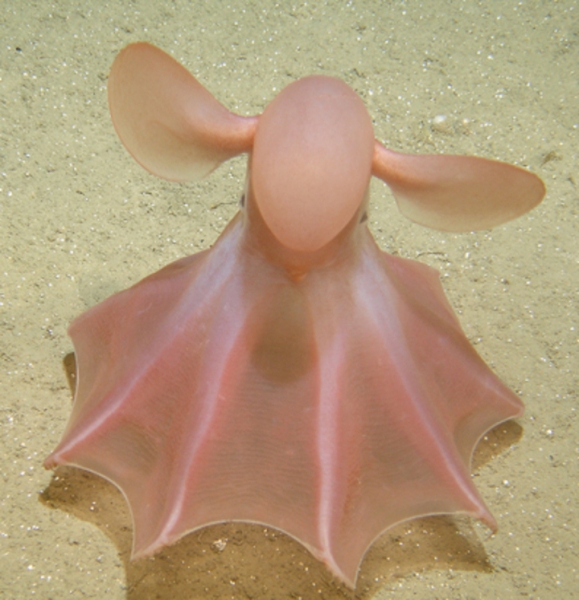
Octopus Dumbo
10. Red-lipped swallow fish
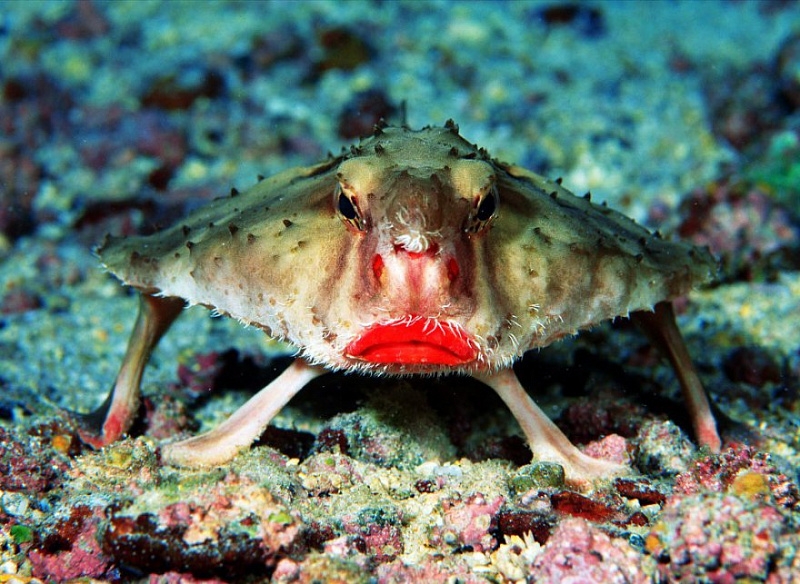
Red-lippedswallow fish
The inhabitants of the Galapagos Islands mostly move along the bottom, instead of swimming. They became widely known for such a provocative “make-up”.
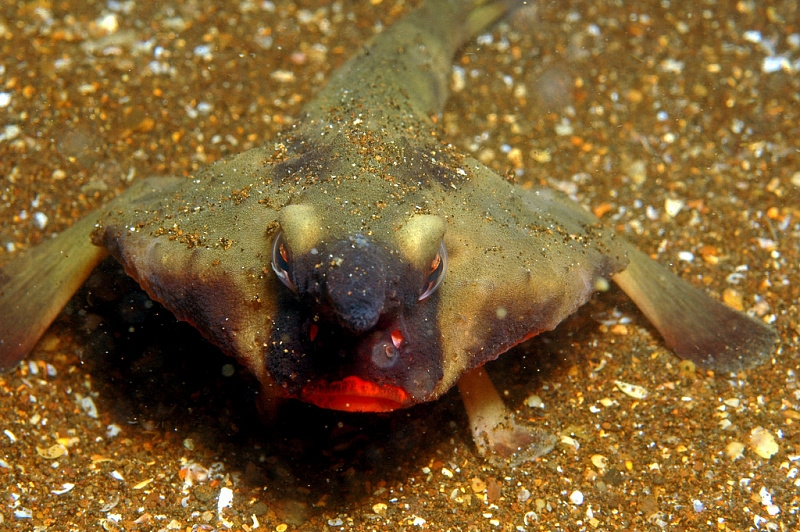
Red-lipped swallow fish, photo
11. Maned wolf
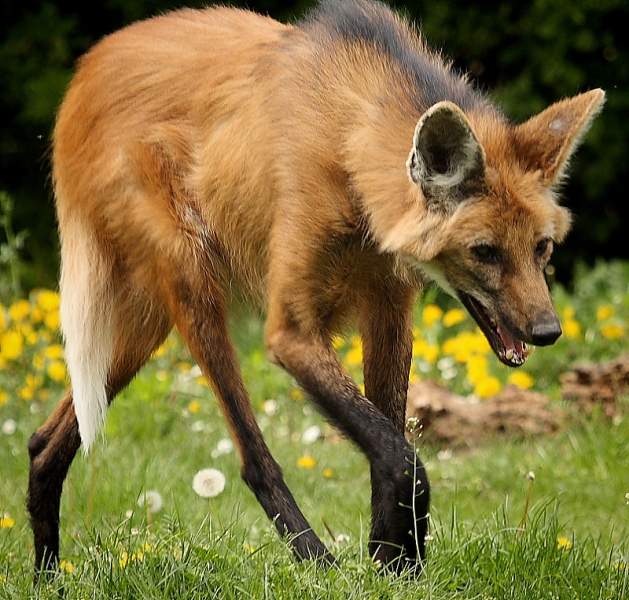
Maned wolf
It can be found in South America. Unusual long legs have evolved as a result of evolution, so the animal is better able to overcome the tall grass growing on the plains.
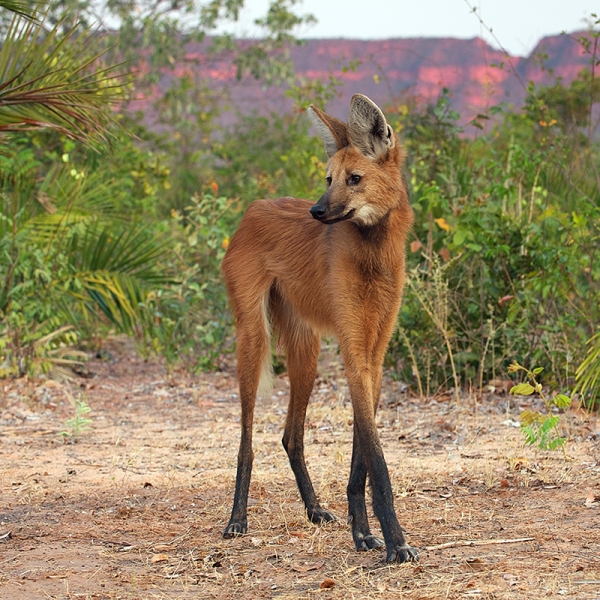
Photo of a Maned wolf
12. Infernal vampire
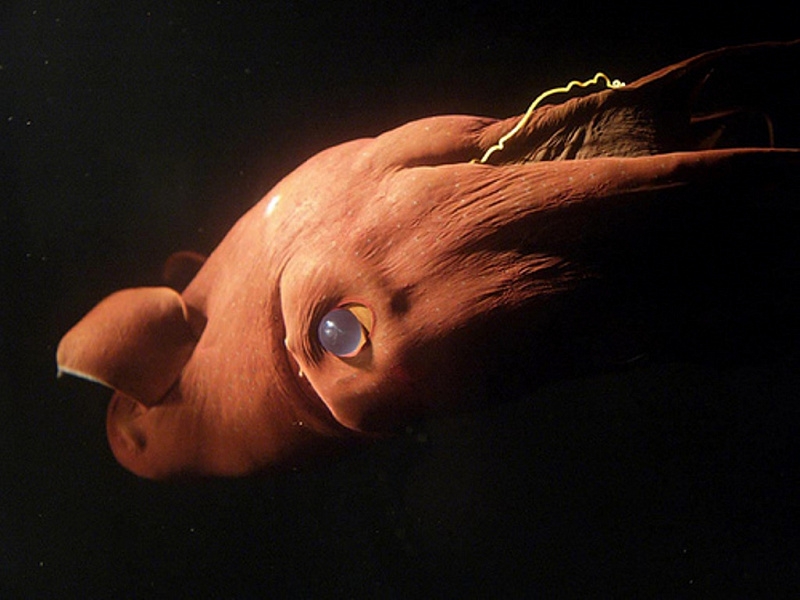
The Infernal Vampire
The only cephalopod that can live at a depth of a thousand meters.
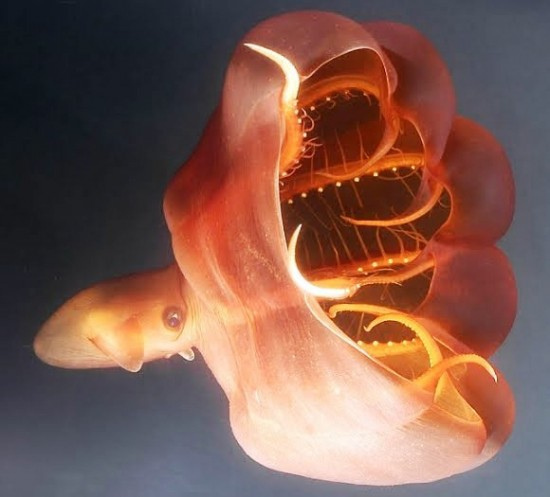
Infernal vampire, photo
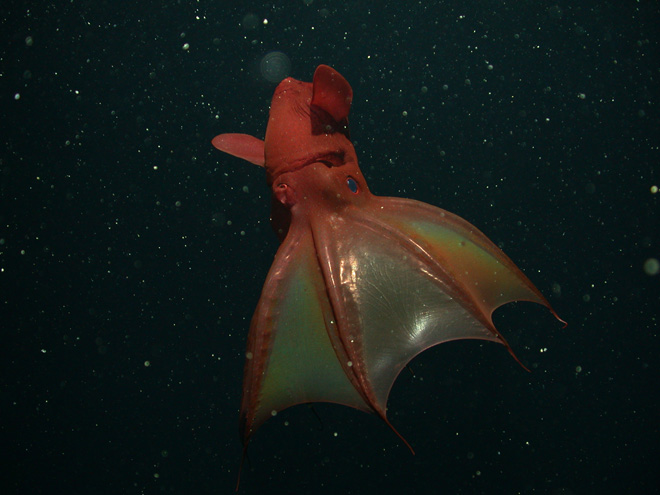
Infernal vampire under water
13. Japanese giant salamander
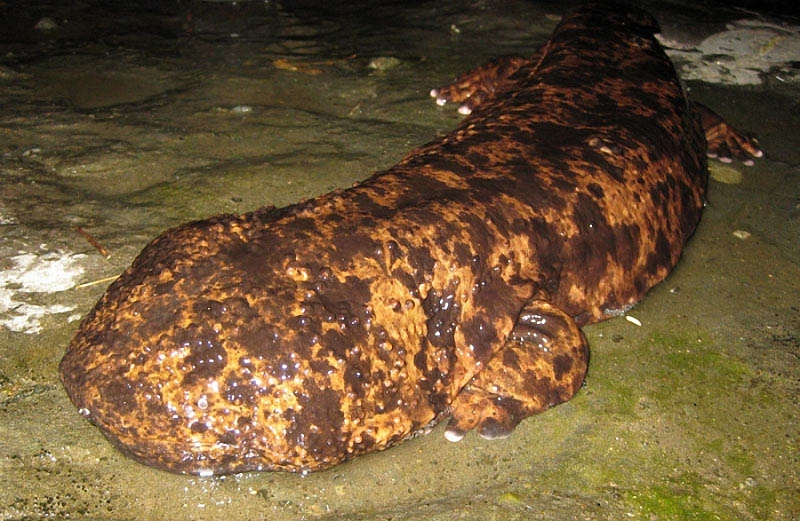
Japanese giant salamander
The largest amphibian. It can grow up to 160 cm in length and reach a weight of up to 180 kg. Life expectancy is up to 150 years.
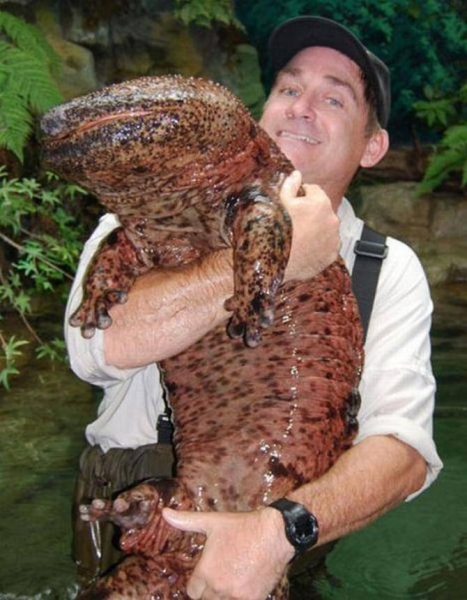
Japanese giant salamander in the photo
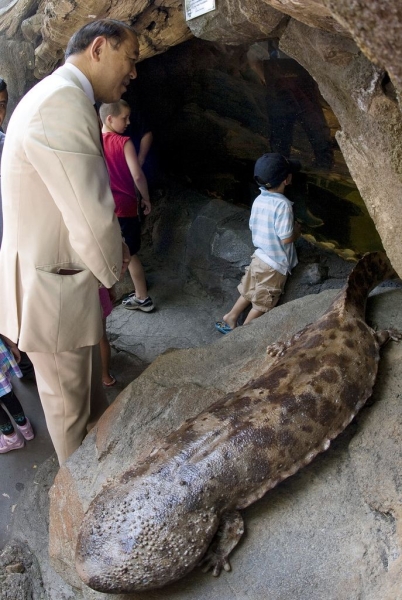
Japanese giant salamander in the zoo
14. Bearded pig
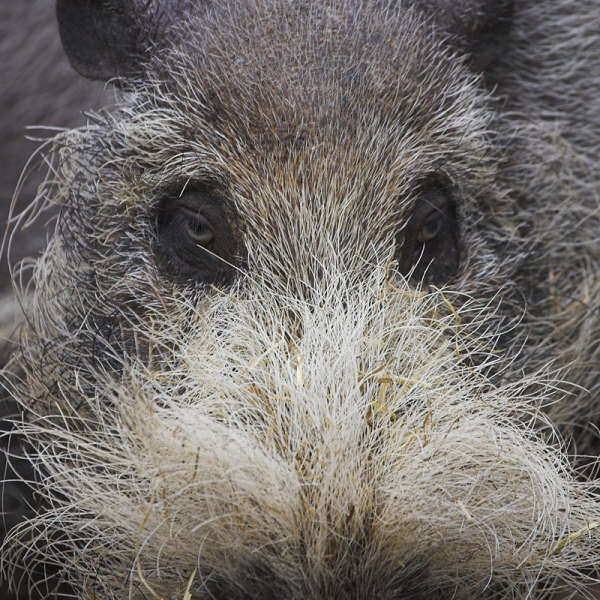
The bearded pig
There are three types of bearded pig: curly bearded pig, Bornean bearded pig and Palawan bearded pig.
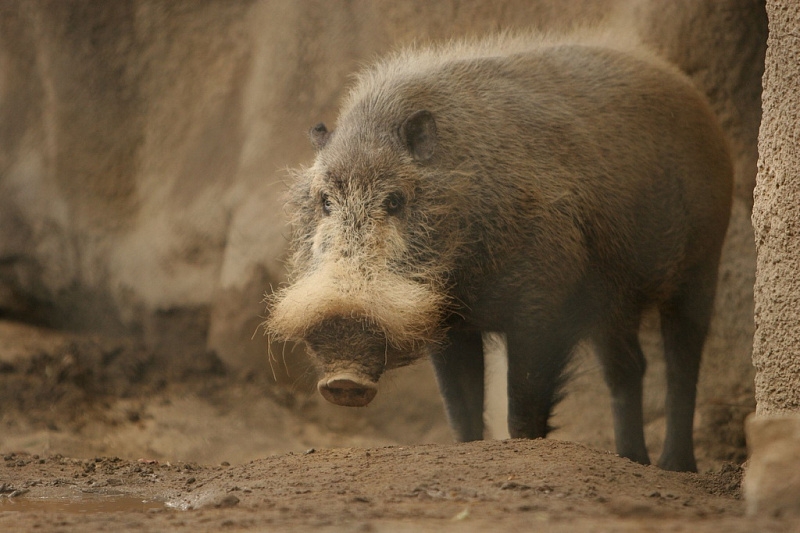
The bearded pig in the photo
15. Sumatran rhinos
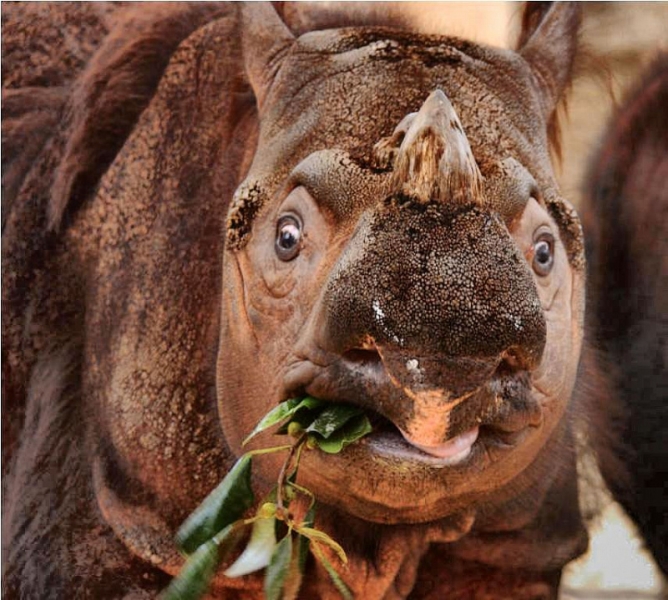
Sumatran rhinos
Ungulate animals from the rhinoceros family. The smallest representatives of their family.
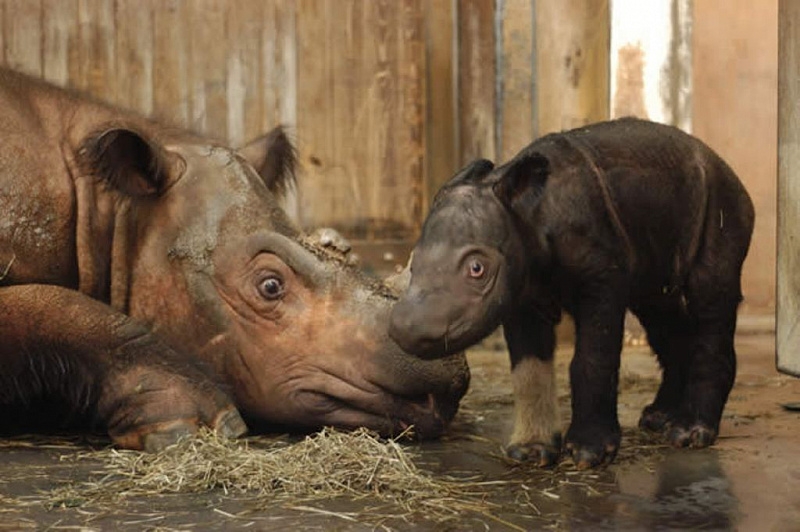
Sumatran rhinoceroses
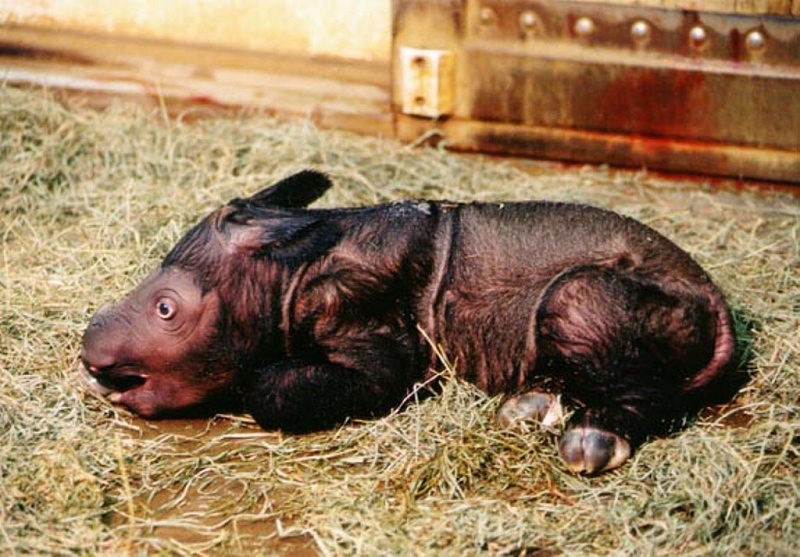
Sumatran rhinos in the photo
16. Forest giraffe, or Okapi
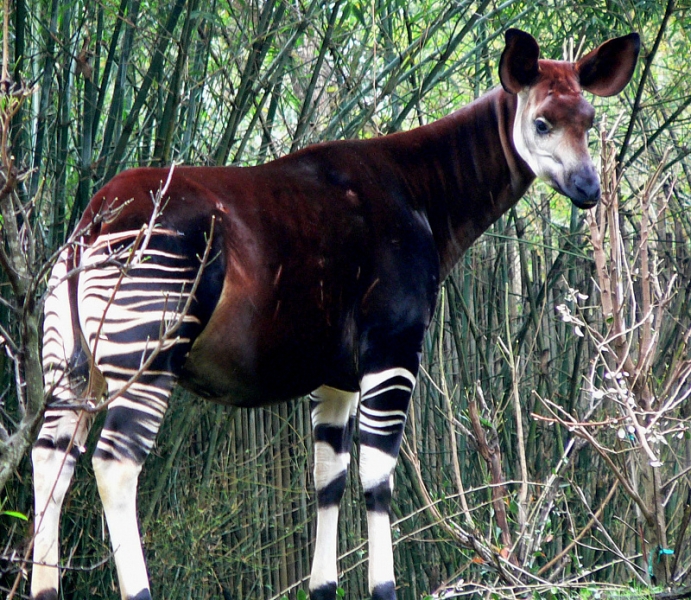
Forest giraffe, or Okapi
A bizarre animal resembling a zebra horse. They are found only on the territory of the Democratic Republic of the Congo. The female bears cubs for as long as 450 days!
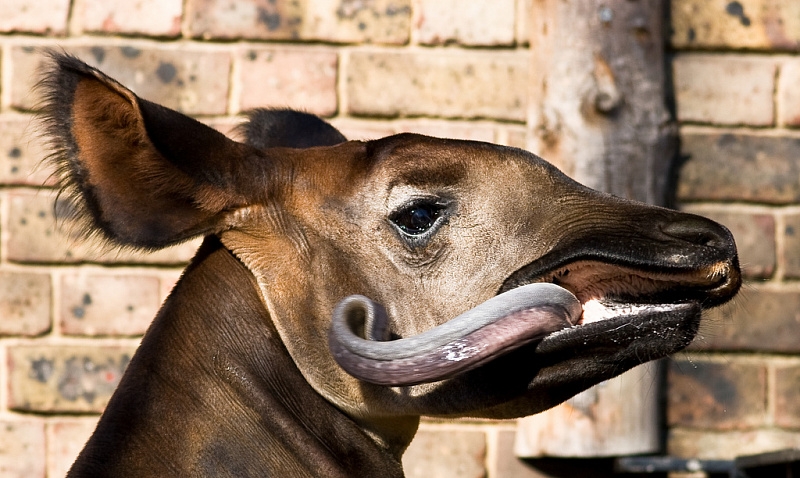
Okapi
17. Palm thief
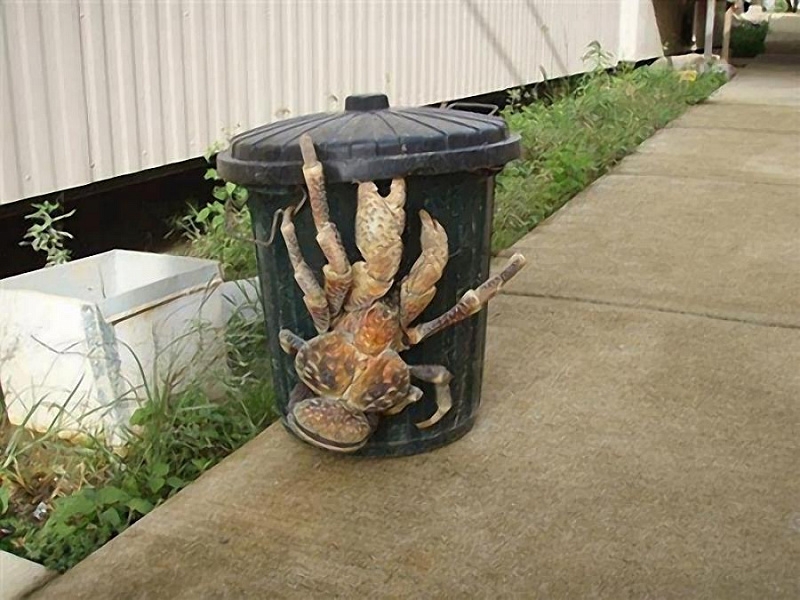
Palm thief
is a ten-legged cancer, he got his nickname because of his addiction to coconuts. They can grow up to 40 cm in length with a weight of 4 kg.
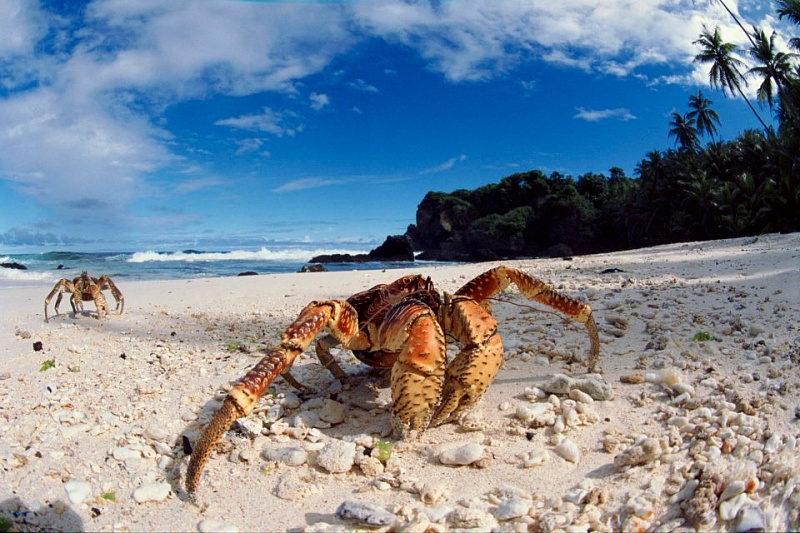
Cancer Palm thief
18. Muddy jumper
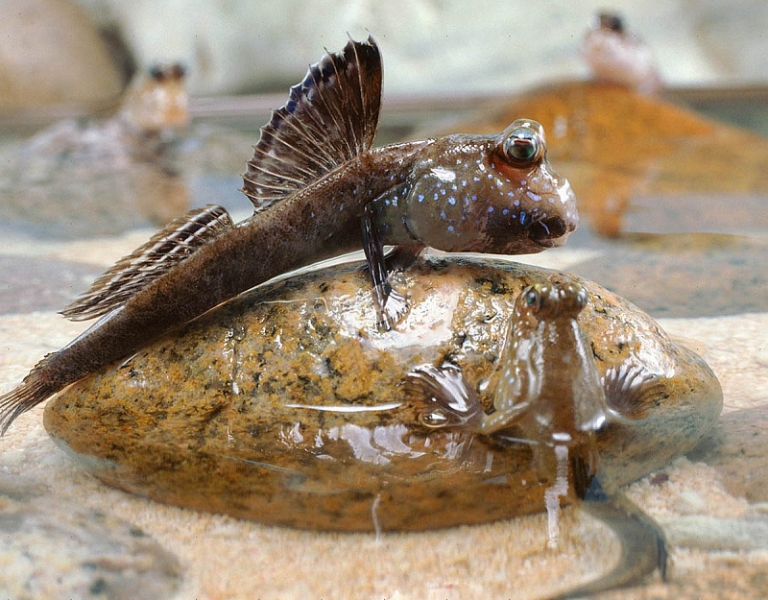
Muddy Jumper
Jumpers inhabit mangrove forests and tropical coasts. Not only do they feel great on the ground, but they also know how to climb trees. They jump high to attract partners.
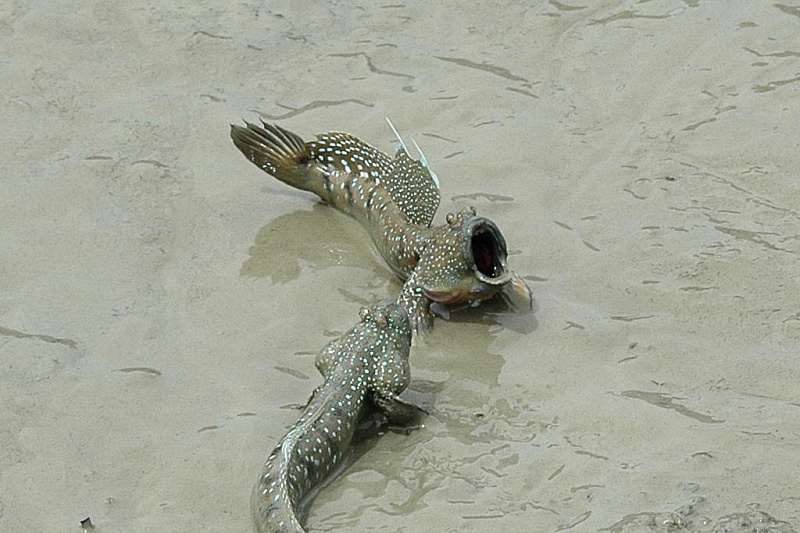
Photo of a Muddy jumper
19. Tibetan fox
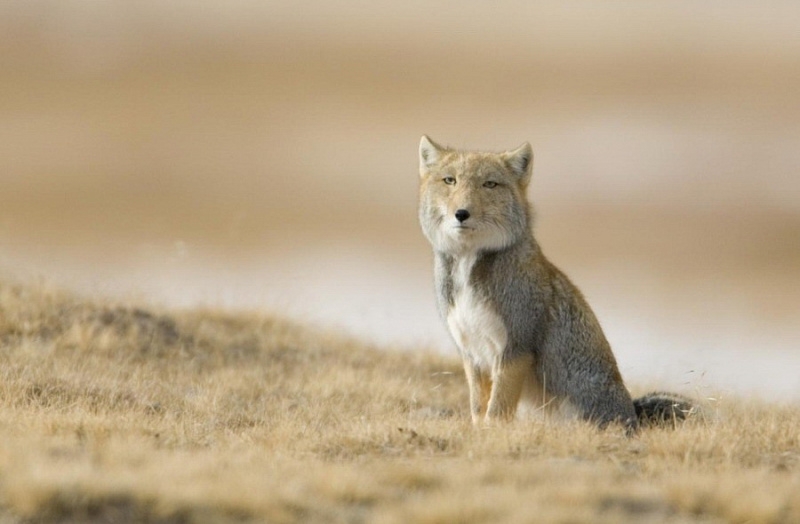
The Tibetan fox
One of the smallest representatives of its kind, the fox’s head looks square due to its thick fur.
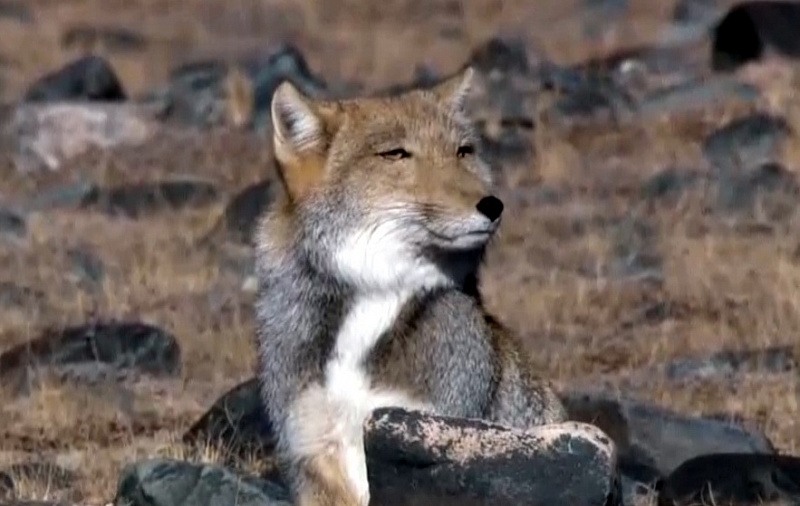
Tibetan fox in the photo
20. Kanchili’s mouse deer
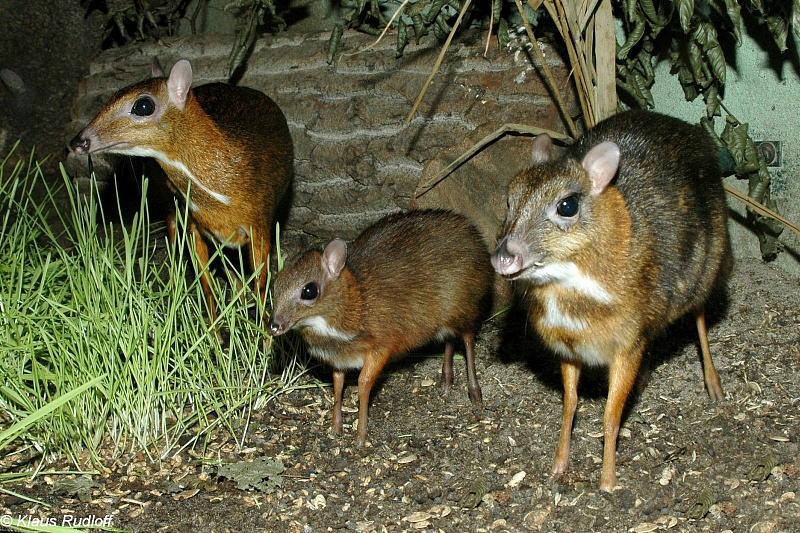
Kanchili’s Mouse Deer
The smallest representative of artiodactyls. The size of an adult mouse deer is 44-45 cm. Life expectancy is 12 years.
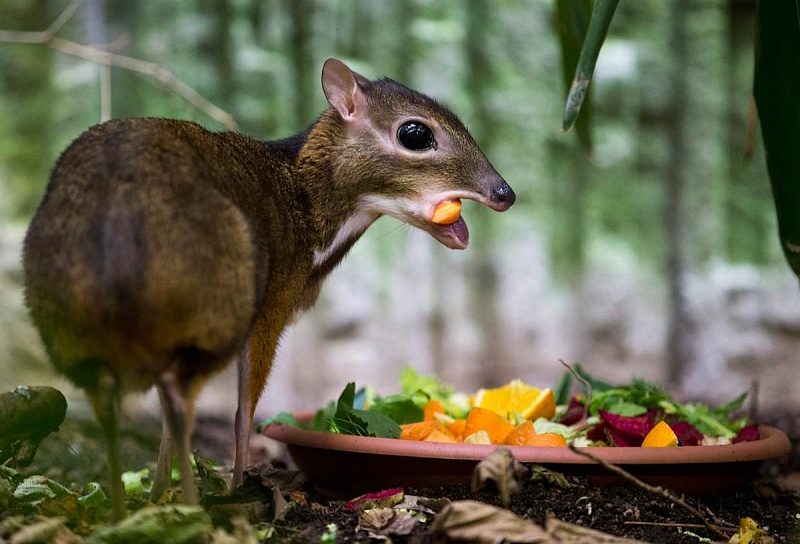
Mouse Deer